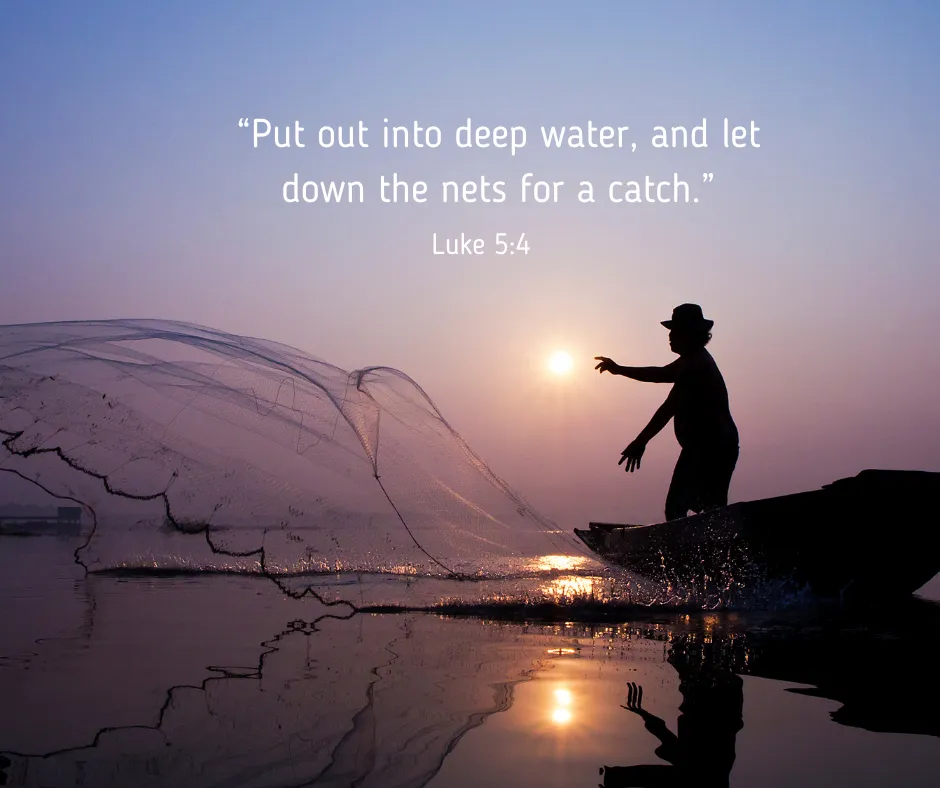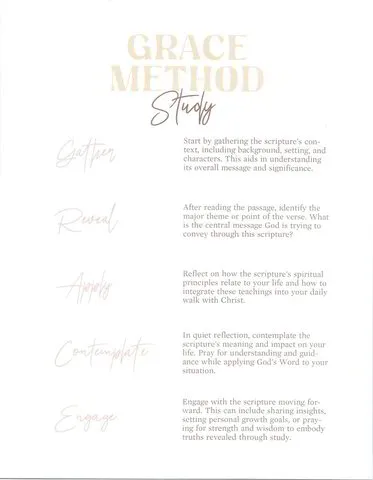Have you ever found yourself at a crossroads, wondering if taking a leap of faith could lead you to unexpected rewards? “Casting Your Net Wide: Insights and Inspiration from Luke 5:1-11” delves into the captivating story of Simon Peter’s encounter with the extraordinary. This tale transcends time and speaks directly to our lives today. Together, we’ll explore the profound lessons from this biblical passage, focusing on how Jesus’ instruction to Simon Peter to cast his net into the deep waters can inspire us. You’ll uncover valuable insights into faith, perseverance, and personal growth by joining us on this journey. You’ll learn how, just like Simon Peter, stepping out of your comfort zone and embracing the unknown can lead to abundant blessings and transformative experiences. So, are you ready to cast your net wide and see what wonders await?

The Setting – Lake Gennesaret (Sea of Galilee)
Lake Gennesaret, or the Sea of Galilee, held a special place in biblical history; it was a significant location for Jesus’ teachings. This lake, as described in Luke 5:1-3, provided a natural gathering place for people to come and listen to Jesus. “So it was, as the multitude pressed about Him to hear the word of God, that He stood by the Lake of Gennesaret,” capturing the scene where the shore of Lake Gennesaret became an open-air venue for spiritual learning. The natural landscape around the lake served as seating for the eager audience.
In this setting, a simple boat belonging to Simon Peter transformed into an impromptu pulpit for Jesus. Luke 5:3 states, “Then He got into one of the boats, which was Simon’s, and asked him to put out a little from the land. And He sat down and taught the multitudes from the boat.” This moment symbolizes the humility and accessibility of Jesus’ teachings. Jesus wasn’t just a distant figure; he was an accessible teacher, using the environment around him to build a personal connection with his audience.
In this serene setting, Jesus provided more than words; he offered spiritual nourishment to those who gathered. His teachings by the lake were impactful, resonating deeply with the everyday lives of his listeners. This approach to teaching was both practical and profound, making complex spiritual truths accessible to all.

Peter’s Initial Skepticism
In the unfolding story of Luke 5:1-11, Peter’s initial skepticism stands out as a pivotal moment, highlighting a universal human tendency. When Jesus instructs him to cast the nets into deeper waters, Peter, a seasoned fisherman, is initially doubtful. His hesitation is rooted in his expertise and experience – after all, he had worked the entire night and caught nothing. This moment in the scripture vividly showcases the internal tug-of-war we often face: the conflict between our instincts and the guidance we receive that seems to defy logic. It’s a struggle that resonates with many of us as we grapple with the decision to rely on our understanding or to step out in faith, especially when the path ahead seems unclear or counterintuitive.
The struggle between instinct, experience, and faith is particularly poignant when God intervenes in unexpected or illogical ways. Peter’s reaction mirrors our responses when faced with divine guidance that challenges conventional wisdom. It’s a reminder that faith often requires us to step out beyond our comfort zones and trust in a plan we may not fully understand.
This narrative from Luke highlights human hesitation in the face of divine instruction and sets the stage for the miraculous outcomes that can follow when we choose faith over skepticism. It nudges us to ponder our moments of doubt and how, like Peter, we might be on the cusp of witnessing something extraordinary if only we dare to trust and obey.

Contradiction of Human Logic by Divine Command
After a night of unsuccessful fishing, Jesus advises Peter to cast his net into deeper waters. Despite his doubts, Peter follows the advice, leading to an astonishing result: “They caught such a large number of fish that their nets began to break” (Luke 5:6). This moment serves as a powerful illustration of how, sometimes, the most significant rewards come from trusting in guidance that defies our conventional wisdom. It teaches us that there’s a dimension of understanding and achievement that we can only reach when we dare to trust in something beyond our immediate perception and experience.
Upon witnessing the miraculous catch, Peter sees Jesus in a new light. Jesus isn’t just another teacher or prophet; this is the Son of God.
Overcome with awe and a deep sense of his own shortcomings, Peter falls to his knees, exclaiming, “Go away from me, Lord; I am a sinful man!” (Luke 5:8). This pivotal moment marks Peter’s spiritual awakening. It’s a powerful reminder of the transformative impact of recognizing our imperfections and the need for something greater than ourselves. In this confession, Peter embodies a universal truth: true insight and growth begin with acknowledging our vulnerabilities and the majesty of the divine.
This realization is not just a fleeting moment for Peter; it sets the stage for a dramatic shift in his life’s purpose. Jesus responds to Peter’s declaration with an invitation and a promise: “Don’t be afraid; from now on, you will fish for people” (Luke 5:10). This is more than a career change; it’s a call to a higher mission. Here, we see a transition from the mundane to the profound, from catching fish to capturing hearts for the Kingdom. This is a lesson for all of us: there are moments in life that redefine our purpose and call us to elevate our goals from the every day to the eternal.

Jesus’ Call to a New Life Purpose
Peter’s new calling isn’t just about changing professions; it’s about embracing a mission far more significant than himself. Becoming a ‘fisher of men’ implies taking on the role of a Kingdom ambassador, spreading the message of hope and salvation. This change in Peter’s life illustrates how embracing our faith can lead us to serve a purpose beyond our individual lives. It’s an inspiring lesson for us all: our greatest impact is our ability to influence and guide others toward spiritual discovery and growth. Following Jesus’ call, Peter sets an example for us to look beyond our immediate circumstances and consider how our actions can contribute to a larger, divine narrative.
The ripple effect of Peter’s blessing underscores a fundamental aspect of faith: it is both a personal journey and a communal responsibility. Just as Peter was called to share his experience and draw others to Christ, we are encouraged to look beyond our individual experiences and consider how we can impact the world around us. The story of Peter is not just about a fisherman who became a disciple; it’s a narrative that calls each of us to recognize the broader purpose of our blessings. It’s a powerful reminder that in embracing our faith, we also accept a role in a larger story that involves guiding, supporting, and enriching the lives of those around us. It is the essence of being a ‘fisher of men’ – to not only bask in the light of our spiritual growth but also to illuminate the paths of others.

In closing, as we reflect on the profound lessons from Luke 5:1-11, we come to appreciate this passage’s timeless relevance and transformative power. Through Peter’s journey from skepticism to faith and from a simple fisherman to a ‘fisher of men,’ we’re reminded of the extraordinary ways faith can reshape our lives. Jesus’ words, “Don’t be afraid; from now on you will fish for people” (Luke 5:10), encapsulate this transformative call that extends to each of us. This story is not just a historical account; it’s a living, breathing invitation to embrace a life of deeper meaning and purpose. It encourages us to look beyond the surface, cast our nets wide in faith, and anticipate the bountiful blessings from trust and obedience. As we conclude this exploration, let’s carry with us the inspiration to step out in faith, embrace our transformation journey, and positively impact the world in our unique ways, just as Peter did following his encounter with the divine.


